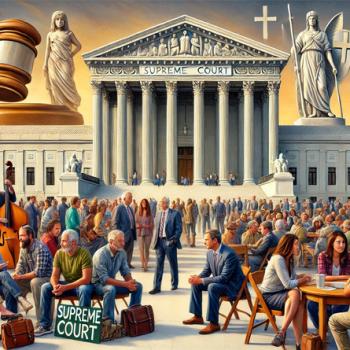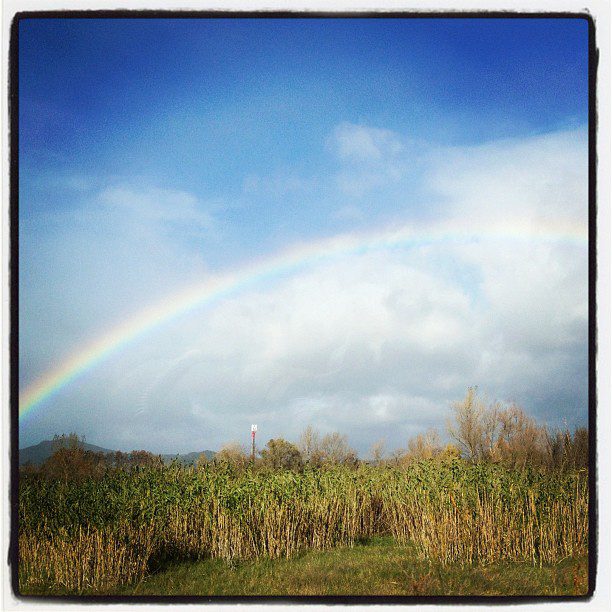The Adventurous Lectionary – January 1, 2023 – The First Sunday of Christmas
Isaiah 63:7-9
Psalm 148
Hebrews 2:10-18
Matthew 2:13-23
A new year is upon us. After the revels of the holidays, with extra services and visits, and imaging for the year ahead, many pastors are taking the Sunday. Indeed, I am preaching on New Year’s Day to give a respite to a local colleague. Hopefully, it will not be a “low” Sunday, after the “high” of Christmas Eve. Hopefully, today’s scriptures, whether interpreted in person or viewed digitally, will prepare us for the year ahead, and inspire thanksgiving for what has been.
A few years ago, in the midst of my Christmas shopping, I noticed an interesting coffee company ad announcing, “Revelation in a cup.” For many of us, coffee is the first revelatory experience we have each morning, but there is a deeper revelation – God’s presence in the moral and spiritual arcs of history. Today’s readings speak of our ability to notice God in our midst. God is abundant, providing hints and revelations everywhere, but do we have senses to notice? Some revelations inspire, others protect. If we can notice God in a Bethlehem baby, perhaps we can notice God in all things, and all things in God. Perhaps, if we train our senses to discover God’s presence, every cup of coffee will become, as Joyce Rupp suggests, “the cup of life.”
The Gospel reading describes human violence at its worse. A price is placed on the baby’s head. He must be destroyed by the powers that be, and so they kill hundreds of innocent children to snuff out one life. There is nothing extraordinary about this: it is going on in Ukraine, Myanmar, Somalia, among refugees throughout the globe and on the USA borderlands, and even – and in more “white collar” ways in boardrooms across our nation.
Destruction and violence are not, however, the goal of history, nor will they be history’s final word. The prophet Isaiah speaks of a new age in which salvation will come through the presence of God’s Beloved. Presence and relationship – the touch of God –will save the people. Yes, we must mend our ways, but our hope is not solely in our own efforts but in the wondrous grace of God who dwells with us bringing forth marvels out of the messiness of our lives. There is hope because God is work to transform the haters and murderers, and install a reign of peace on earth, good will to all.
Psalm 148 rejoices in the discovery of a universe of praise. Imagine the Psalmist’s ecstasy at discovering divinity speaking forth in all creation. From her or his own self-interest, he or she is raised to cosmic consciousness. All things praise God; God’s energy flows through all things, inspiring them to praise. But, not only all things, but each thing, reflect divine wisdom and deep-down praise their creator. We live in an animated and enchanted universe. There are no dead zones, no senseless regions. All things experience holiness – what process theologians have called panexperientialism or panpsychism – in the intricate interdependence of life. Psalm 148 is rounded out by the final words of the Psalms, from Psalm 150:6, Let everything that breathes praise God! Praise God!” And, that inspires us to ask, “What if every breath was a prayer? What if every breath was a blessing?”
We suffer from ecstasy deprivation. It is reflected in our own boredom and alienation from the non-human world, and our own willingness to secure this year’s profit while putting planetary life at risk. It is found in the inability of leaders to see the beauty of a newborn in its wonder and their failure to enact policies that place care for the vulnerable as a priority war-making and profit-making. Radical amazement, as Abraham Joshua Heschel proclaims, is the ultimate goal of religious commitment.
The words of the Epistle to the Hebrews present the profound embeddedness of God in the world. God is “one of us,” Christ shares our faith, embracing and making sacred every season of life. To the chagrin of worshipers of the high gods and despots, the savior suffers. Not aloof, he shares in our pain and redeems us through sacrificial love. Herein, we find an ethic of relatedness, seen also in Philippians 2:5-10: to live a Christ-formed life means to live empathetically and sacrificially. God is not apathetic, unfeeling, but empathetic, feeling with. Indeed, only a suffering, companioning, God can save as both Whitehead and Bonhoeffer assert. God the pain-bearer is also God the nation-healer. God’s pain inspires us to experience the world as God does – the Divine Pathos, as Heschel says – which spurs us to social involvement as God’s companions in healing the world.
The Gospel reading involves violence as well as hope, and had best not be read with young children present. Herod is angry at the magi’s duplicity and wants to take revenge on the young children of Bethlehem with hopes that one of them might be the Messiah. The powers that be do not want either a prophet or a Christ/Messiah, whose message will turn everything upside down. Nothing has changed as millions are still being sacrificed to maintain the status quo and powerful countries ruminate about barring the door to refugees. Still, God is at work. Again, Joseph has a life-changing dream, and the Holy Family flees to Egypt, refugees in search of a home for their newborn and dependent on the kindness of strangers. God is revealed in dreams as well as doctrine, in intuition as well as institution, in sensations as well as sacraments. Revelation abounds and we best take heed to the many ordinary and extraordinary, secular and religious, ways that God communicates with us. (For more on the Gospel passage, see Bruce Epperly, “From Cosmos to Cradle: Meditations on the Incarnation” and “Messy Incarnation: Meditations on Christ in Process.”
Today’s passages remind us that the world is more wonderful than we can ever imagine. There is tragedy and there is also beauty, and beauty will have the final word, after the despots and demagogues have left the stage. Noticing is the heart of today’s scriptures along with the recognition that each moment is God-filled and each situation pregnant with divine revelation to both inspire and protect. In the spirit of William Blake, we can proclaim that “if the doors of perception were cleansed, everything would appear to us as it is – infinite.”
+++
Bruce Epperly is a pastor, professor, spiritual guide, and author of over seventy books, including THE ELEPHANT IS RUNNING: PROCESS AND OPEN AND RELATIONAL THEOLOGY AND RELIGIOUS PLURALISM; PROPHETIC HEALING: HOWARD THURMAN’S VISION OF CONTEMPLATIVE ACTIVISM; MYSTIC’S IN ACTION: TWELVE SAINTS FOR TODAY; WALKING WITH SAINT FRANCIS: FROM PRIVILEGE TO ACTIVISM; MESSY INCARNATION: MEDITATIONS ON PROCESS CHRISTOLOGY, FROM COSMOS TO CRADLE: MEDITATIONS ON THE INCARNATION, and THE PROPHET AMOS SPEAKS TO AMERICA. He can be reached at drbruceepperly@gmail.com














